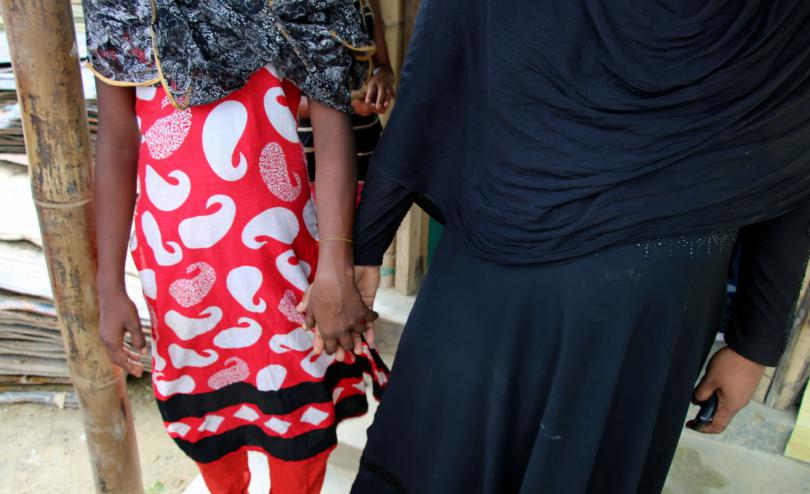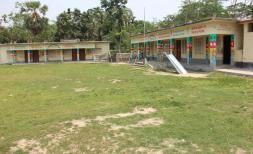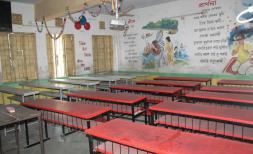Myanmar youth especially vulnerable to online abuse, hate speech and fake news on social media

New report by Save the Children and the University of Sydney reveals:
- Online hate speech, sexual harassment and fake news are undermining social unity, leading to ‘hate speech fatigue’.
- A serious lack of awareness of misinformation and how to deal with fake news on social media which could undermine young people’s abilities to make informed democratic decisions.
- Social media also plays a positive role in the lives of Myanmar youth, providing opportunities for them to learn, share and connect within and outside their communities. This is especially important for conflict-affected children and young people.
- An urgent need for cyber safety skills for young people in Myanmar to better protect themselves and report abuse/harassment as well as innovative online mental health support services.
- You can read the full report here.
The unprecedented and rapid explosion in social media use in Myanmar has left many young people – particularly girls, and those from ethnic and religious minority groups – especially vulnerable to online sexual harassment and the negative impacts of fake news and hate speech, new research by Save the Children and the University of Sydney’s Cyberpsychology Research Group shows.[i]
In a unique study, researchers asked hundreds of children and young people across two conflict-affected states in Myanmar how they use social media and the impact it has on their lives[ii]. The findings reveal a serious lack of digital literacy skills among the population, both young and old. It found that many social media users did not have the skills or experience to identify misinformation or effectively respond to online bullying despite a widespread recognition that they pose problems for personal and community well-being.
HATE SPEECH & FAKE NEWS
Myanmar is a test case for what can happen when the pace of internet use outstrips the development of digital literacy and cyber safety skills. Whilst many highlighted the positive contribution social media made in their lives, young people across Myanmar told us that repeated exposure to fake news and propaganda targeting specific communities meant they suffer from ‘hate speech fatigue,’ making them less likely to use inbuilt reporting and blocking functions that help to combat the spread of dangerous and divisive language. Furthermore, many young people responded to online hate speech and fake news with emojis or comments such as “haha” unaware that doing so served to give the offending post more traction, based on Facebook’s own algorithms.
According to the UN[iii], Facebook has come under criticism for helping to create an environment in Myanmar where “extremist discourse can thrive, human rights violations are legitimised and incitement to discrimination and violence facilitated.” Hate speech was widely cited by young social media users in this study, with displaced Muslim youth in Rakhine State the most likely to report being impacted by it mentally and emotionally.
A 20-year-old Muslim man in Rakhine State told Save the Children:
“They call us stateless people. When I hear this word, I don’t want to eat, I don’t want to go to school, I don’t want to work, I don’t want to sit in the shop, I just want to drink poison and die. This is how we feel. It is more than words to express how we feel.”
ONLINE SEXUAL HARASSMENT
Widespread online sexual harassment was resoundingly reported by girls and women surveyed in the report. They described harassment that echoed their offline experiences, including male strangers trying to form relationships with them through social media, send inappropriate sexual content and extort them for money, naked photos or declarations of reciprocal love.
The use of rape and sexual violence as a weapon of war in Myanmar’s ethnic conflicts is well documented.[iv] But until now very little has been known about the extent of gender-based violence and sexual harassment many girls and women in Myanmar’s conflict-affected regions face. Nearly every girl/woman surveyed in the report had story of online harassment to tell.
One 18-year-old girl from Rakhine State told Save the Children:
“Many girls encounter online harassment. For example, someone photo-shopped a girl’s picture and then created a fake account with her sexy picture. When people saw this, they misunderstood and thought bad things about this girl.”
Respondents said they generally don’t have the skills or knowledge to address online sexual harassment via the reporting, blocking and privacy features of the social media platforms they use – mostly Facebook – in large part because they don’t know how to use them.
Andy Nilsen, Director of Advocacy and Campaigns, Save the Children in Myanmar, said:
“On the one hand we see promising signs that social media can play a supportive role in Myanmar’s peace process and overall transition to democracy. On the other hand, a lack of knowledge and experience with social media has left young internet users in Myanmar highly susceptible to disinformation campaigns, hate speech and harassment on these very same platforms. Social media provides a unique opportunity for children and youth in Myanmar to connect with people and services they would otherwise not normally have access to. We can’t let polarising and discriminatory voices on social media hijack the minds of young people.
“Democratic processes are vulnerable to fake news, and with a general election due in Myanmar in 2020, social media could easily be used to undermine the region’s newest democracy. With nearly half of Myanmar’s population under the age of 25, it is essential that young and first-time voters have the chance to participate in the democratic process and ensure their voices are heard. Urgent investment is needed to ensure young people in Myanmar, especially those living in conflict affected regions, receive the skills they need to navigate their growing online world.”
Dr Brad Ridout, Lead Report Author and Cyberpsychologist at the University of Sydney, said:
“Our research shows that online bullying, sexual harassment and hate speech are causing serious emotional distress to young social media users in conflict-affected parts of Myanmar. It also tells us that while trust in news on social media is generally low due to the proliferation of fake news, Myanmar youth spend hours on social media every day. They use it as a tool to connect, learn, and share and seek information, including about their mental health. But with little mental health support currently available, our findings present promising opportunities to develop mobile apps and online support services to connect Myanmar youth with the vital information and counselling they so desperately need.”
Melyn McKay, Report Author and Research Advisor, said:
“Both girls and boys must be taught how to protect themselves from online sexual harassment or bullying. It’s also vital that social media companies, particularly Facebook, which is so widely used in Myanmar, monitor their sites more effectively for hate speech and fake news, taking into consideration the culturally particular ways in which it is produced and circulated. We must work together with the private and public sectors, technology companies and civil society to find new ways to give young people the tools they need to stay safe online. Social media can erode or reinvigorate democracy. Let’s make sure it’s the latter.”
For more information or to arrange an interview kindly contact:
Bhanu Bhatnagar (Bangkok):
Bhanu.Bhatnagar@savethechildren.org
+66 82 6868 318
Out-of-hours (London):
+44 7831 650 409
NOTES TO EDITORS
- The introduction of cheap, easily accessible, web-enabled mobile communication devices in Myanmar is one of the most notable and profound changes to have emerged out of Myanmar’s political transition from military to civilian rule in 2011.
- A 2018 report by mobile operator Telenor found that 78% of internet users in Myanmar have poor digital literacy skills due to their lack of previous exposure or experience with digital media.
- Save the Children has been working in Myanmar since 1995, helping children to access essential services such as healthcare and education. Over the years, Save the Children has expanded its programmes within the country, supporting the most vulnerable and disadvantaged children and their families to access nutritious foods, gainful employment and financial services, community protection, child rights, clean water and sanitation, malaria and tuberculosis control and HIV/AIDS treatment. Save the Children has a presence in 11 out of Myanmar’s 14 states/regions.
- Save the Children has been working in Rakhine State since 2010, with nearly 300 staff supporting both humanitarian and development projects in the state. Save the Children provides support to internally displaced people through programmes in child protection, nutrition, food security, education, water, sanitation and hygiene, as well as support to conflict-affected Rakhine and Muslim villages in central Rakhine.
- In Kayah State, Save the Children works in the areas of education, child protection and child rights, reaching tens of thousands of children in remote and vulnerable communities, with the help of local civil society and the Myanmar government.
[i] Between 2014 and 2019 the number of Facebook users in Myanmar increased from just 1.2 million to 21 million – that’s a 1,650% increase in just five years.
[ii] Between November and December 2018, the research team conducted 16 focus group discussions with young people aged 18-36 (121 participants in total) and 38 key informant interviews (age range 18-55) in Rakhine and Kayah States, Myanmar. In addition, a short social media use survey was administered to 232 children and young people aged 13-35, including to all focus group and interview participants. The full report is available upon request.
[iii] UN Fact-Finding Mission releases its full account of massive violations by military in Rakhine, Kachin and Shan States. For more see here: https://www.ohchr.org/EN/NewsEvents/Pages/DisplayNews.aspx?NewsID=23575&LangID=E
[iv] UN Human Rights Council Report on Sexual & Gender Based Violence in Myanmar (Sept 2019). For more see here: https://www.ohchr.org/Documents/HRBodies/HRCouncil/FFM-Myanmar/sexualviolence/A_HRC_CRP_4.pdf




